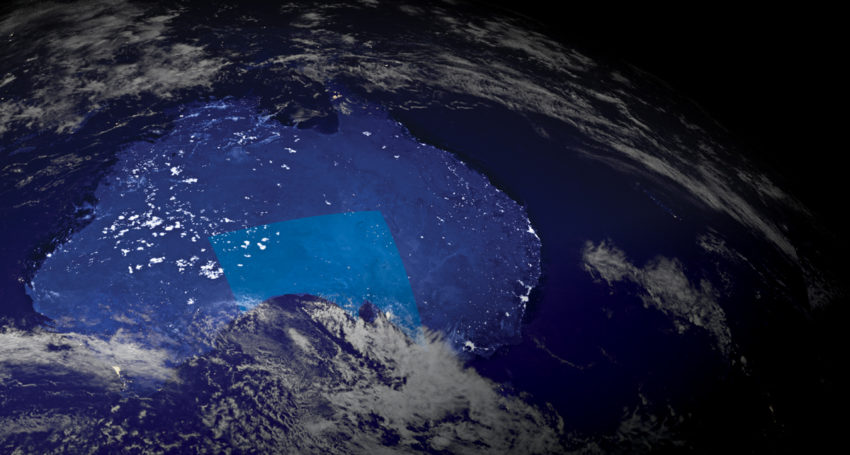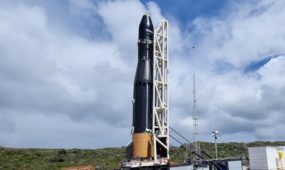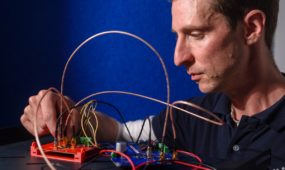Australian Space Agency warned: fund it or risk failure
Space
The outgoing chairman of the Space Industry Association of Australia warns that without proper funding the nation’s Space Agency could falter.

Sign up to receive notifications about new stories in this category.
Thank you for subscribing to story notifications.

Leading space expert Michael Davis, who is stepping down from his chairmanship of the Space Industry Association of Australia in 2019 after decades of work, told more than 450 delegates at the 6th South Australia Space Forum in Adelaide today that financial backing by government is crucial to keep the Space Agency operating long term.
“A risk is that in five to 10 years the Space Agency will be shut down like the former Space Office because of a lack of budget support,” Davis said, referring to the Australian Space Office being established in 1987 and surviving on a meagre budget of $50 million until it was abolished in 1996.
The Australian Space Agency was launched on 1 July and received $41 million over four years from 2018-19 in the federal budget to “grow the Australian space industry,” including $26 million to help launch the agency which will “coordinate domestic space activities for Australia”.
Davis was however optimistic that after the Space Agency’s initial four-year set up period ended there would naturally be more funding because of changed economic factors.
He said the world had transformed in recent decades, making the space industry more essential to the Australian economy and national interests.
Davis said four factors would help ensure continued budget support for the Space Agency.
Top of the his list was the international trend of the space industry moving from government to private interests, which had also led to the “democratisation of space”. Davis also cited market demand for new services from the space industry and Australia’s unique geographic position to service the international industry.
In an earlier address at Australia’s largest space forum, Australian Space Agency Deputy Dr Anthony Murfett foreshadowed Davis’s comments by asking industry players to submit cost recovery ideas to the Agency.
The Space Agency issued a request for comments on the “impact a decision on a full or partial cost recovery model would have on [industry] business or projects” on 30 November.
Cost recovery involves the government charging the non-government sector some or all of the efficient costs of a specific government activity, such as charging for launch permits and approvals.
The cost recovery will begin by 31 August 2019 and industry has until 13 December to file their comments.
Delegates to the forum were hopeful that the location of the Space Agency headquarters would be announced today, but no hints were given. The COAG meeting on 12 December is likely to be the last chance for the announcement before the new year.
South Australia has put forward a strong case to house the headquarters or a node of the Space Agency.
Opening the South Australian Space Industry Centre’s forum today Premier Steven Marshall said the state was a natural spot for the Space Agency because industry and research institutes were already collaborating in South Australia.
“The space industry is growing at an unprecedented rate in South Australia,” Premier Marshall said.
“The are more than 70 companies operating with 800 people employed.”
South Australia has historically been the centre for space in Australia, and is home to the military rocket launching site at Woomera. Yesterday a private orbital launch site was announced by Southern Launch.
Called the Whalers Way Orbital Launch Complex, the 1190-hectare site sits at the bottom of Eyre Peninsula, about 35 minutes’ drive from the regional centre of Port Lincoln.
Southern Launch CEO Lloyd Damp said today that after an 18-month search for the perfect spot the company found a site at Whalers Way on the Eyre Peninsula for its launch pad.
“We looked at sites from Western Australia to Victoria that were suitable for a southern launch and provided the right safety for people and the environment and South Australia met all the criteria,” said Damp.
“Besides offering the ability to launch rockets into a polar or sun synchronous orbit, we also needed to have access to major infrastructure like ports and airports.”
Damp said the startup was in discussions with domestic and international rocket manufacturers to begin designing and developing the necessary infrastructure at its site for launch vehicles and would begin construction early in 2019 with the aim of being operable by the end of the year.
“Both here and overseas I realised a lot of new companies were developing small rockets, but there weren’t many places to launch these rockets from and Australia has this really unique geography,” Damp said.
Southern Launch will target rockets with payloads between 50kg and 400kg, like Rocket Lab’s Electron, that carry microsatellites into polar or sun synchronous orbits to service Internet of Things applications such as monitoring agricultural land.
In the past month two South Australian companies have launched a total of five nanosatellites
Yesterday, Adelaide-based IoT company Fleet Space Technologies launched its second Centauri nanosatellite aboard SpaceX’s Falcon 9 SSO-A mission from Vandenberg Air Force Base in California.
Fleet sent Centauri I aboard Indian Space Research Organisation’s PSLV-C43 mission on 29 November and launched experimental satellites Proxima I & II aboard Rocket Lab’s It’s Business Time manifest on 11 November.
Fleet Space co-founder and CEO Flavia Tata Nardini said both Proxima satellites and Centauri I were successfully completing their duties and the second Centauri satellite was expected to start transmitting data in the next few weeks.
Another South Australian IoT company, Myriota, also launched its fourth satellite on the SpaceX’s Falcon 9 SSO-A mission.
South Australia is also backing a bid for the SmartSat CRC, a collaborative effort to solve major satellite system and advanced communications challenges that will provide enhanced connectivity, navigation and monitoring, to be based in Adelaide.
The South Australian pitch for a $200 million space industry-focused cooperative research centre in Adelaide is one of six finalists, with the winning bids for the $731 million CRC program being announced in 2019.
Jump to next article



